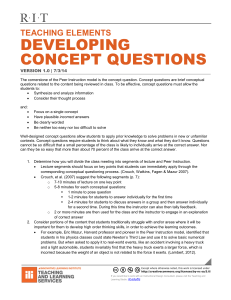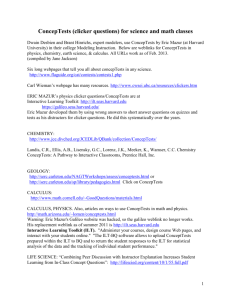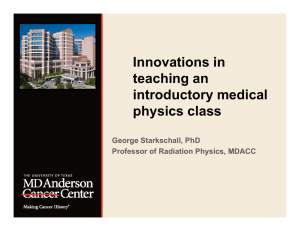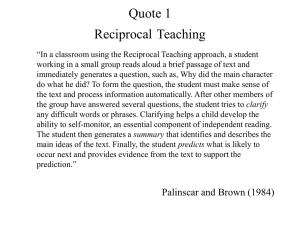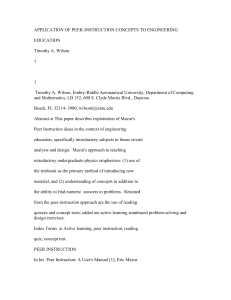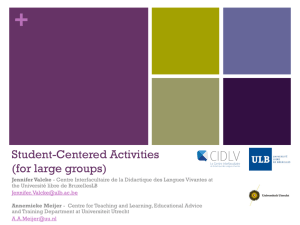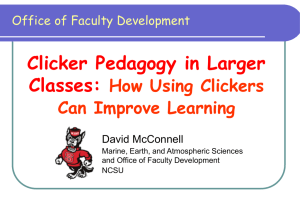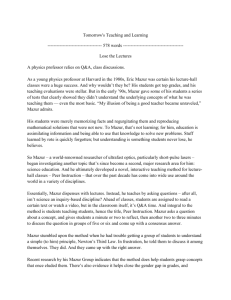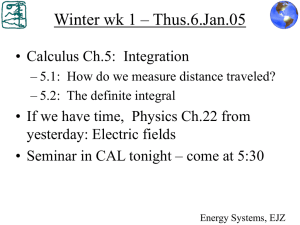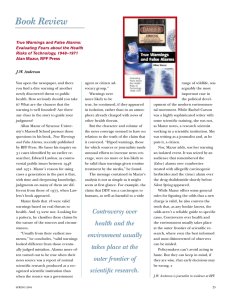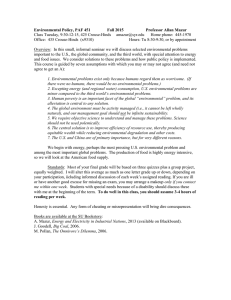Peer Instruction
advertisement
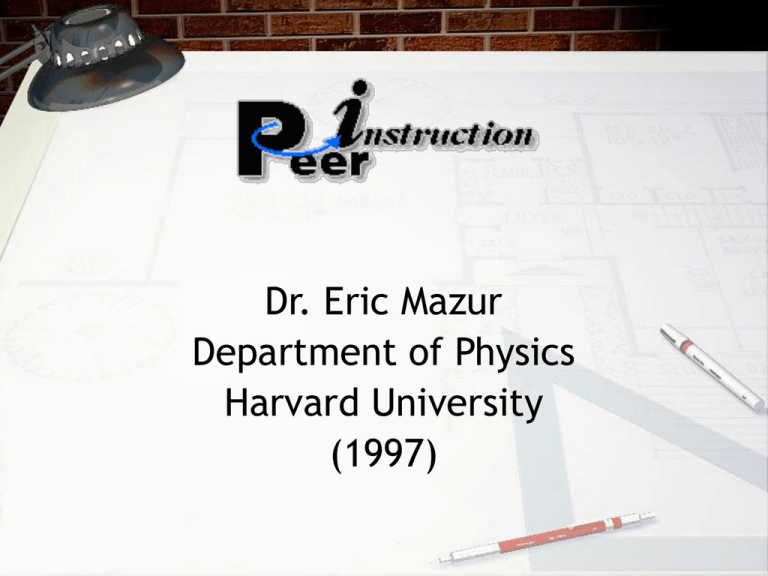
Dr. Eric Mazur Department of Physics Harvard University (1997) PER: A Real Eye Opener • Traditional (teacher-centered) methods of instruction versus “informed” (studentcentered) methods of instruction. • Many bleak results from traditional methods* – – – – Low student interest Students retain preconceptions Lack of conceptual understanding More emphasis on memorization than understanding resulting from “surface” learning rather than “deep” learning. *Sheila Tobias (1990) They’re Not Dumb, They’re Different: Stalking the Second Tier. Tucson, AZ: Research Corporation. Mazur’s “Peer Instruction” • • • • • • • Pre-class reading Reading quiz Lecture on selected topics Individuals work on ConcepTests Small group discussion Feedback provided to instructor Remediation as necessary P. I. Procedure - 1 • Assign reading & write reading quiz. • Prepare limited lecture outline (3-4 topics) from reading. • Prepare ConcepTest questions: – – – – – Single concept per question Question not soluble using equations Adequate M.C. foils (based on preconceptions) Unambiguous wording Neither too easy nor too hard. P. I. Procedure - 2 • Lecture (approx. 15 min. per topic) – 7-10 min. for lecturing – 5-8 min. for ConcepTest) • Demonstrations – Not part of lecture – Related to ConcepTest questions • Examinations contain: – Concept questions – Equation-based questions Conducting ConcepTests • Students view question, reflect on answers. • Students record individual responses on whiteboard responder pads. • Students share responses and gather in small groups to work out detail. • A single group response is given. • Instructor responds to groups. ?’s about Peer Instruction • Does P.I. really work? • Do traditional problem-solving skills suffer as a result of using P.I.? • How does one deal with the “depth versus breadth” argument using P.I.? • How much effort does P.I. take? Peer Instruction Resources • Mazur, E. (1997) Peer Instruction: A User’s Manual. Upper Saddle River, NJ: Prentice Hall. • JiTT also something worth checking out • World Wide Web: http://galileo.harvard.edu
